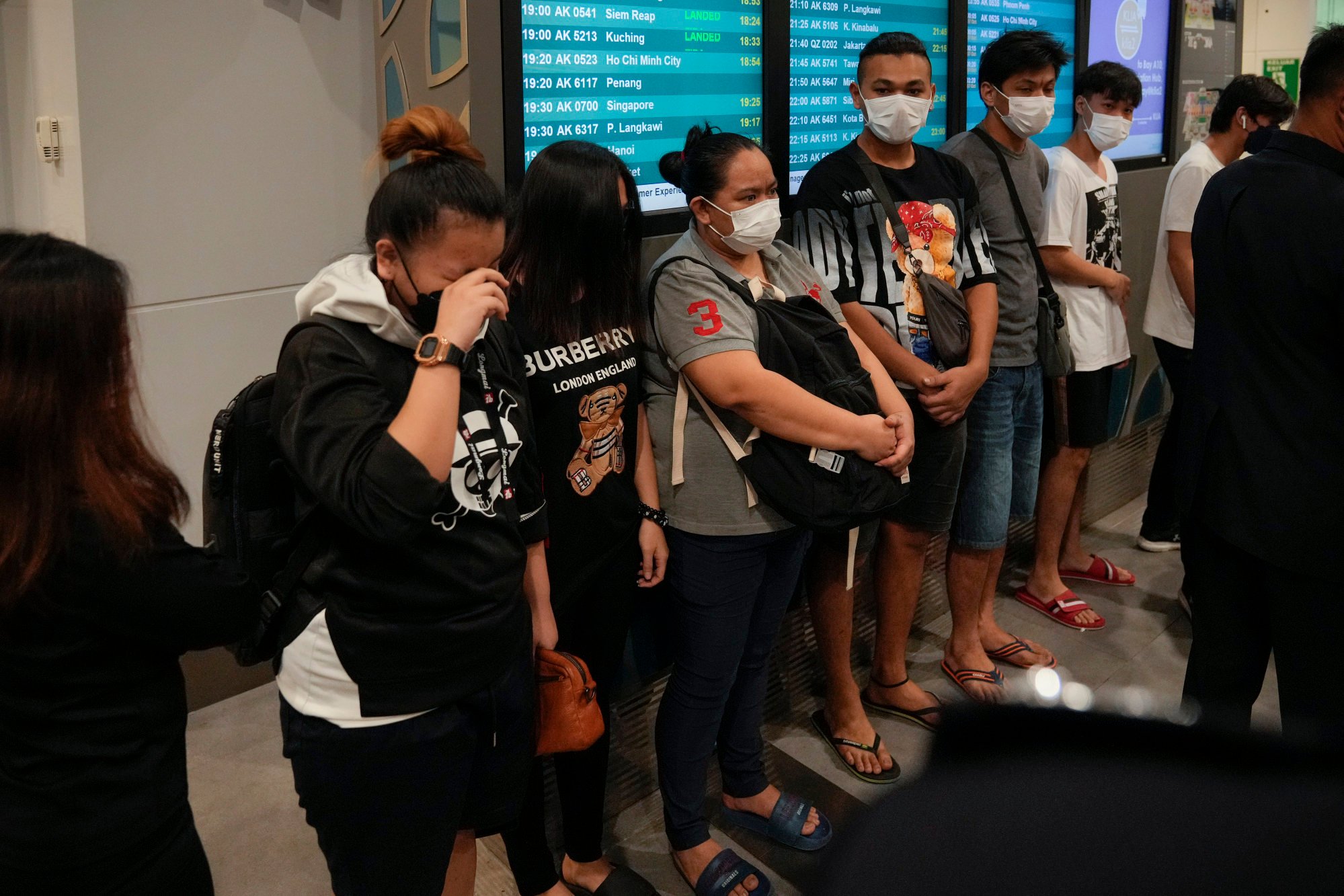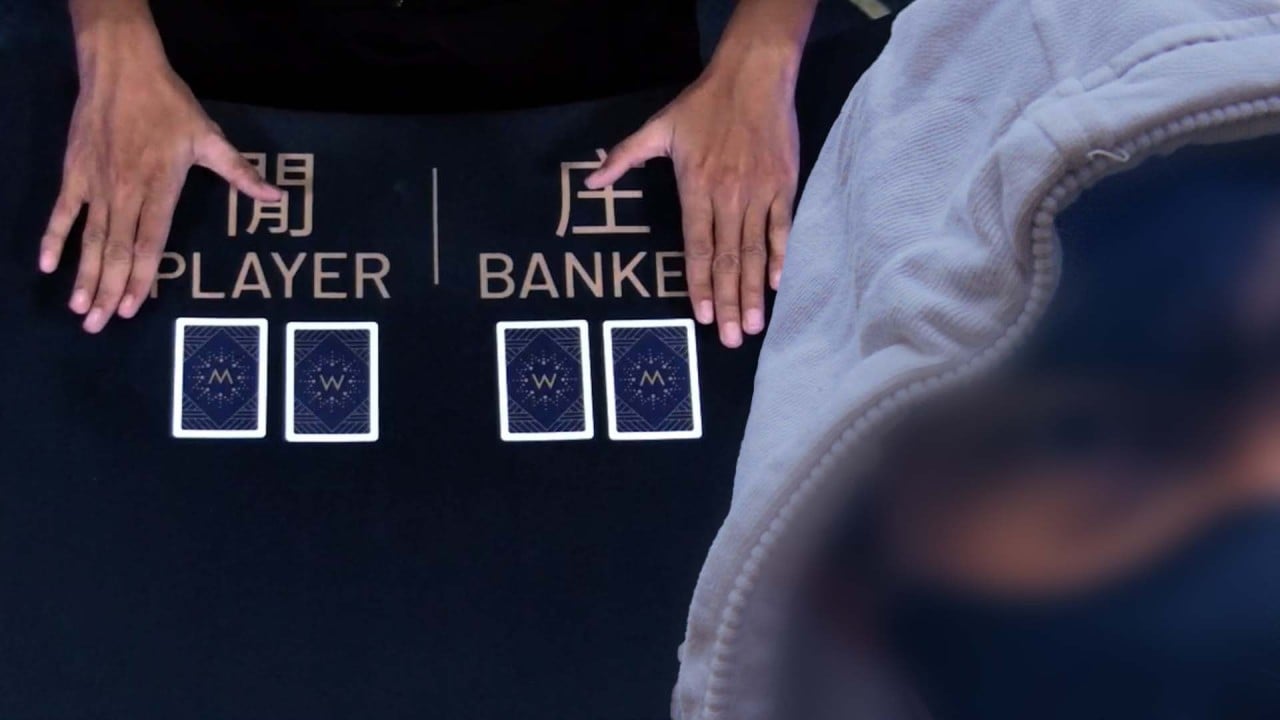
Playing dirty: China faces off with increasingly sophisticated money launderers
Playing dirty: China faces off with increasingly sophisticated money launderers
“The relative novelty and complexity of cryptocurrencies make them a fertile ground for scams and Ponzi schemes, targeting less informed investors,” said cybersecurity expert Ngo Minh Hieu, who works for the Vietnamese government’s National Cyber Security Centre and other independent start-ups.
Tether Holdings’ backers claim that the cryptocurrency it issues is tied to US Treasury Bills – though critics have questioned whether it really holds sufficient assets to back everything it mints.
Even those running Phnom Penh’s ecosystem of bricks-and-mortar crypto exchanges and online USDT exchanges admit they are running a parallel financial service in the developing economy.
“We are an underground bank,” one exchange owner told This Week in Asia, answering in Chinese. “The questions you ask might link to customer privacy, so please understand that we cannot talk to you.”
English-speaking Filipinos tricked into Chinese scam jobs: whistle-blowers
English-speaking Filipinos tricked into Chinese scam jobs: whistle-blowers
But even at the front end of sales, there are warnings over Cambodia’s cryptocurrency boom.
“A lot of people lose money on their phone, you have to be careful,” one staff member said.
Expert Ngo Minh Hieu says there is no absolute security in the hurly-burly of the crypto world.
“Hacking of cryptocurrency exchanges and wallets is also a significant risk,” he said.
SIM cards, personal data
It is impossible to know the scale of Tether’s reach into Cambodia’s economy. But globally, around 84 billion USDT is in circulation.
Banks, exchanges and platforms are flourishing, their promises of smooth, reliable digital solutions to money flow problems readily advertised through social media and encrypted channels.
One Cambodia-registered financial platform, Huione Pay, has a branch which looks like any other bank, except the tellers discuss USDT exchange options with customers. But its main activities occur online.
Huione hosts a network of interlinking Telegram channels, with dozens of “exchange groups” offering different assets for sale.
Analysis of Huione’s publicly available USDT exchange activities provides a window into how Tether enables transactions in Cambodia.
Some Chinese-language chats ask for “pure white assets” indicating money from a legitimate source, while others do not ask for such provenance.
From love scams to fake jobs, Asia-Pacific is new ‘ground zero’ for cybercrime
From love scams to fake jobs, Asia-Pacific is new ‘ground zero’ for cybercrime
Though it is hard to confirm from such vague advertisements, both of the services on offer are crucial tools for scam operators, who dole out dozens of SIM cards to workers so that they can disguise identities and provide contact information to potential marks.
Other conversations appear to be in code: discussions about “cars” appearing to mean bank cards that can be used to receive money from fraud victims, while the letter “u” indicates USDT, the currency accepted in most of the deposits and transactions in the dark trade.
One of the cryptocurrency trade groups advertised by Huione offers online investigation services coveing criminal background checks, company records and bank statements, and at one point the advert addresses a potential customer base: “[We] welcome the scamming compound to come and ask for information.”
Bank officials did not answer This Week in Asia’s repeated requests for further details on their activities.
In a sense, the perfect operating conditions for criminals have been created in border areas and special economic zones of the region
Tether’s wider allure to Southeast Asia’s crime groups is beyond dispute, security experts say.
“In a sense, the perfect operating conditions for criminals have been created in border areas and special economic zones of the region,” said Jeremey Douglas, the United Nations Office on Drugs and Crime’s regional representative. He explained that cryptocurrency – particularly USDT traded on the TRON exchange platform – was heavily used by cyber criminals and the region’s governments were not able to keep up.
“The capacity of criminal groups running online gaming, scams, money-laundering operations and underground banks is far more advanced than most enforcement agencies in Southeast Asia,” Douglas added.
The list includes Cambodian-registered businesses ZhengHeng Group Co Ltd, Heng He Casino, KB Hotel, Pacific Real Estate Management Co and Golden Sun Sky Co Ltd; Cambodian tycoon Hum Sovanny; as well as She Zhijiang and Dong Lecheng, both Chinese nationals who have naturalised via Cambodia’s passport-for-purchase programme.
Beyond reach
Cambodia’s national bank has embraced blockchain, the digital ledger technology that enables cryptocurrency, to enable QR payments and transfers across registered banks.
But cryptocurrencies have been banned in the country since 2017.
Meas Soksensan, the spokesman for Cambodia’s Economy and Finance Ministry, said he hadn’t been informed about the US-driven Tether investigation, and the National Bank of Cambodia could not be reached for comment.

Cryptocurrency proliferates in Cambodia’s scores of casinos, the physical emporiums dedicated mainly to Chinese, or Chinese diaspora, customers evading gambling bans at home – as well as an untold number of online gambling sites operating from the Southeast Asian nation.
In a September report on casinos and cyber fraud in Southeast Asia, the UN Office for Drugs and Crime reported that cryptocurrency increasingly appears to be used in illicit financial flows, and estimated that between US$7.5 billion and US$12.5 billion in illegal money is moving through a Southeast Asian country that it did not name.
Cambodia banned its burgeoning online gambling business in 2020, yet sites are still readily available.
I think most governments in Asia are unprepared for this development
Ben Lee, managing partner for the regional gaming consultancy IGamiX Management and Consulting, said cryptocurrencies are embedded in the casino industry because of the simplicity of cross-border transfers.
“I think most governments in Asia … are unprepared for this development,” he said, adding that casinos cared more about revenue than the nature of the money passing through their establishments.
Tether appears to be the cryptocurrency of choice for online gambling businesses catering to Chinese markets, said Jonny Ferrari, a colourful US entrepreneur who’s worked in Cambodia’s casino industry since 2015, explaining it lets criminals rinse their money via multiple shell companies.
“Nobody has the ability to track it back that far,” he said.


















